
Istanbul: The Crossroads of Continents
Istanbul, the city that straddles two continents, offers a unique blend of European and Asian cultures. It is a place where ancient history meets modern vibrancy. From its stunning mosques and palaces to its bustling bazaars and contemporary art scenes, Istanbul provides a rich tapestry of experiences for every traveler. Visit the iconic Hagia Sophia, a marvel of Byzantine architecture that has stood the test of time. Just a short walk away is the Blue Mosque, known for its breathtaking blue tiles. The Topkapi Palace, once the seat of the Ottoman Empire, now invites visitors to explore its lavish rooms and gardens. No trip to Istanbul is complete without a stroll through the Grand Bazaar, one of the oldest and largest covered markets in the world. Here, you can find everything from spices to jewelry. For a more modern shopping experience, head to Istiklal Avenue, a bustling street filled with shops, cafes, and galleries. Take a leisurely Bosphorus cruise to see the city from a different perspective. The waters divide Europe and Asia, offering stunning views of Istanbul’s skyline. For an unforgettable sunset, visit the Galata Tower, which offers panoramic views of the city. Istanbul’s culinary scene is a feast for the senses. Savor traditional Turkish delights like baklava and kebabs, or indulge in fresh seafood at a waterfront restaurant. Don’t forget to try a cup of strong Turkish coffee or tea, often enjoyed in cozy tea gardens.
Local tips in Istanbul
- Purchase a Museum Pass to save money and skip lines at major attractions.
- Visit early in the morning or late in the afternoon to avoid crowds at popular sites like Hagia Sophia and the Blue Mosque.
- Use public ferries for a budget-friendly way to enjoy Bosphorus views.
- Wear comfortable shoes; the city’s cobblestone streets and hilly terrain require good footwear.
- Learn a few basic Turkish phrases; locals appreciate the effort and it enhances your experience.
Neighbourhoods in Istanbul
Istanbul: The Crossroads of Continents
Istanbul, the city that straddles two continents, offers a unique blend of European and Asian cultures. It is a place where ancient history meets modern vibrancy. From its stunning mosques and palaces to its bustling bazaars and contemporary art scenes, Istanbul provides a rich tapestry of experiences for every traveler. Visit the iconic Hagia Sophia, a marvel of Byzantine architecture that has stood the test of time. Just a short walk away is the Blue Mosque, known for its breathtaking blue tiles. The Topkapi Palace, once the seat of the Ottoman Empire, now invites visitors to explore its lavish rooms and gardens. No trip to Istanbul is complete without a stroll through the Grand Bazaar, one of the oldest and largest covered markets in the world. Here, you can find everything from spices to jewelry. For a more modern shopping experience, head to Istiklal Avenue, a bustling street filled with shops, cafes, and galleries. Take a leisurely Bosphorus cruise to see the city from a different perspective. The waters divide Europe and Asia, offering stunning views of Istanbul’s skyline. For an unforgettable sunset, visit the Galata Tower, which offers panoramic views of the city. Istanbul’s culinary scene is a feast for the senses. Savor traditional Turkish delights like baklava and kebabs, or indulge in fresh seafood at a waterfront restaurant. Don’t forget to try a cup of strong Turkish coffee or tea, often enjoyed in cozy tea gardens.
When is the best time to go to Istanbul?
Iconic landmarks you can’t miss
Galata Tower
Discover the breathtaking views and rich history of Galata Tower, a must-visit historical landmark in the heart of Istanbul.
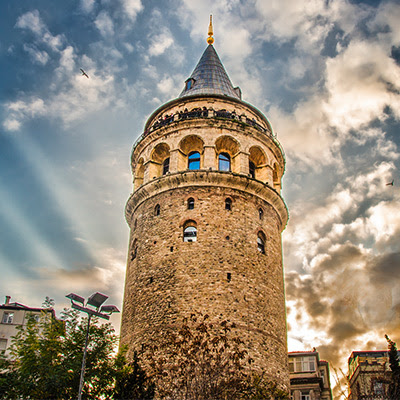
Grand Bazaar
Explore the Grand Bazaar, a historic Istanbul marketplace brimming with culture, crafts, and the rich aromas of Turkish spices, perfect for every traveler.
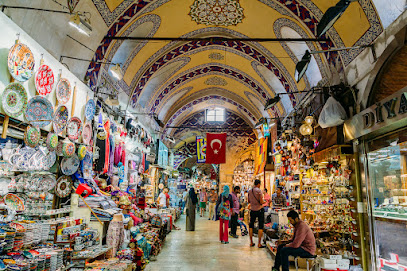
Hagia Sophia Grand Mosque
Explore the Hagia Sophia Grand Mosque, a stunning architectural masterpiece blending Byzantine and Ottoman heritage in the heart of Istanbul.
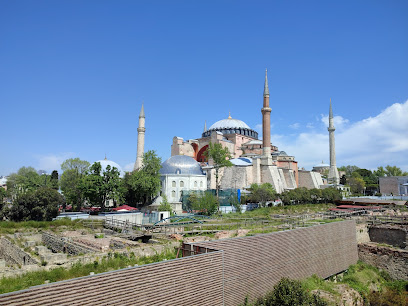
Topkapi Palace Museum
Explore the stunning Topkapi Palace Museum, a UNESCO World Heritage Site showcasing the grandeur of Ottoman history and breathtaking views of the Bosphorus.
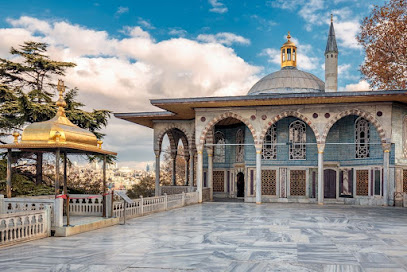
The Blue Mosque
Discover the architectural marvel of The Blue Mosque, a symbol of Istanbul with its stunning blue tiles and rich Ottoman history.

Dolmabahçe Palace
Explore Dolmabahçe Palace, a stunning blend of Ottoman history and architectural grandeur on the shores of the Bosphorus in Istanbul.
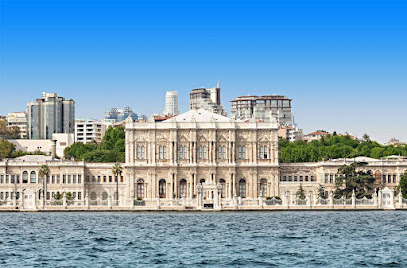
Basilica Cistern
Explore the Basilica Cistern, an iconic underground marvel in Istanbul, showcasing stunning Byzantine architecture and rich historical significance.
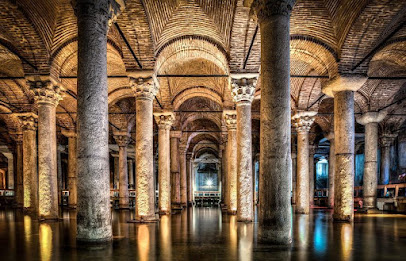
Gülhane Park
Explore Gülhane Park, a serene oasis in Istanbul filled with lush gardens, historical monuments, and breathtaking views, perfect for relaxation and cultural exploration.
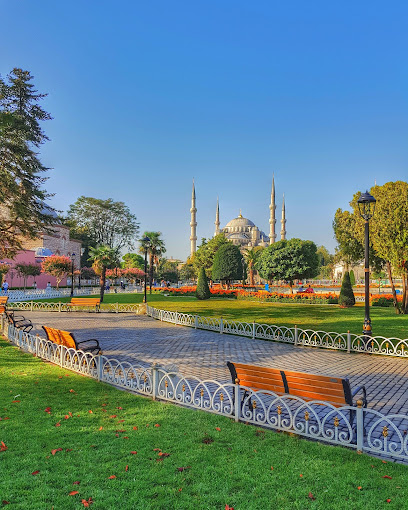
Suleymaniye Mosque
Discover the awe-inspiring Suleymaniye Mosque, an architectural masterpiece in Istanbul that offers a glimpse into the city's rich Ottoman heritage.
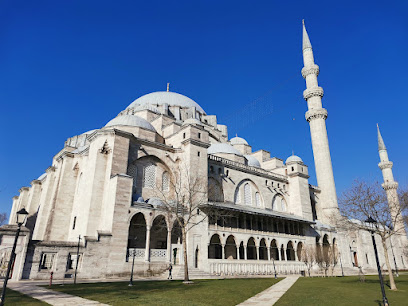
Galata Bridge
Experience the heart of Istanbul at Galata Bridge, where history, culture, and stunning views meet along the Golden Horn.
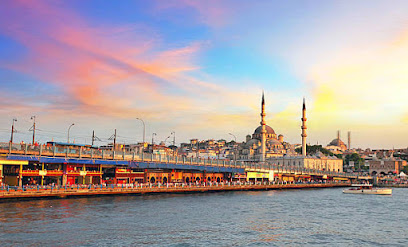
Miniaturk
Explore Turkey's architectural marvels in miniature at Miniaturk, an enchanting museum showcasing intricate models of the nation's most iconic landmarks.
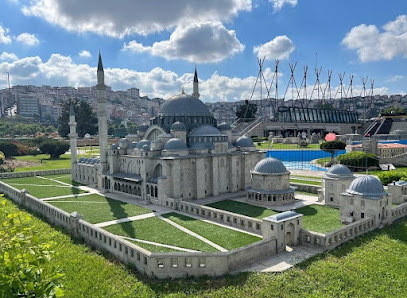
Sultanahmet Square
Sultanahmet Square: A vibrant plaza in Istanbul, surrounded by iconic landmarks like the Hagia Sophia and Blue Mosque, where history comes alive.
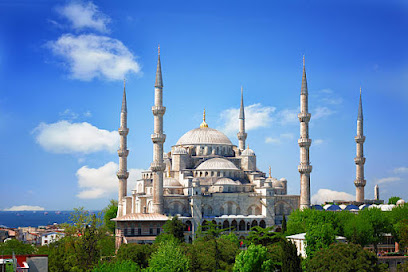
Maiden's Tower
Discover the enchanting Maiden's Tower, a historic landmark in Istanbul that blends myth and beauty, offering breathtaking views of the Bosphorus.
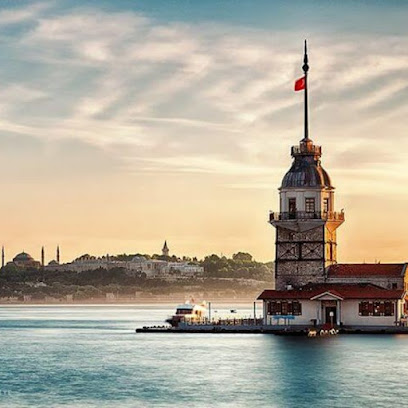
Istanbul Archaeological Museums
Explore the rich history of ancient civilizations at the Istanbul Archaeological Museums, a must-see cultural gem in the heart of Turkey.
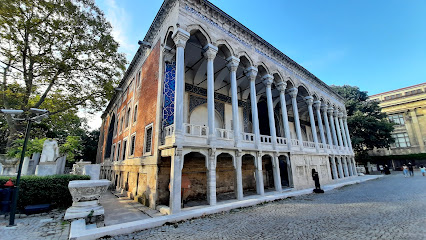
Beylerbeyi Palace
Discover the opulence of Beylerbeyi Palace, a magnificent museum showcasing the luxurious lifestyle of the Ottoman Empire along the Bosphorus.

Unmissable attractions to see
Galata Tower
Discover the stunning views and rich history at Galata Tower, an iconic landmark in Istanbul that offers a glimpse into the city's past.
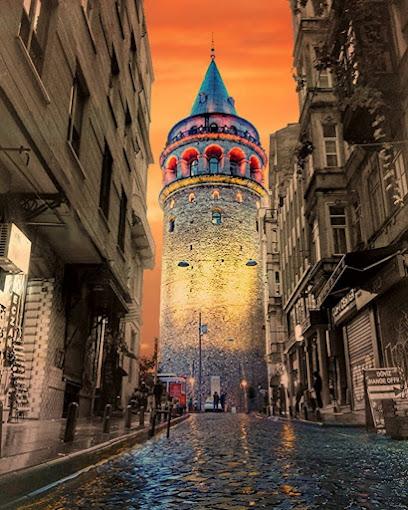
Hagia Sophia Grand Mosque
Explore the rich history and stunning architecture of the Hagia Sophia Grand Mosque, a must-visit landmark in Istanbul, blending spirituality and artistry.
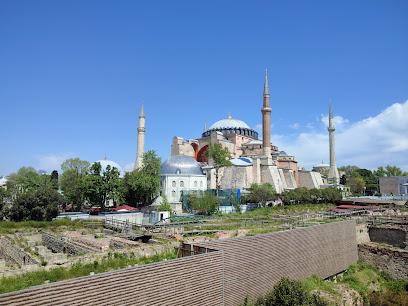
Topkapi Palace Museum
Explore the rich heritage and stunning architecture of Topkapi Palace Museum, a UNESCO World Heritage site in Istanbul, where history comes alive.
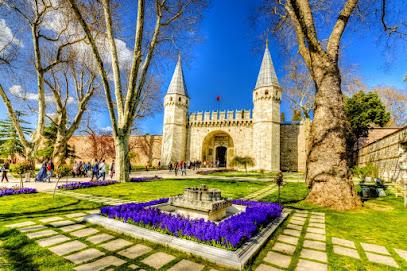
The Blue Mosque
Discover the beauty and cultural significance of The Blue Mosque, one of Istanbul's most stunning architectural gems and a symbol of Ottoman heritage.
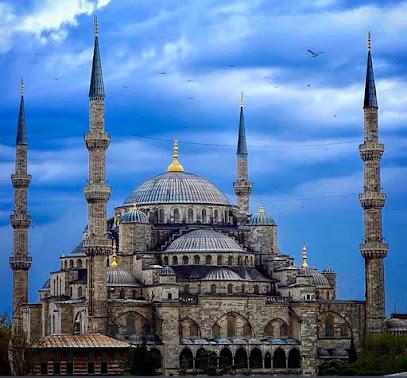
Dolmabahçe Palace
Explore Dolmabahçe Palace, an architectural gem of the Ottoman Empire, with stunning gardens and rich historical significance in Istanbul.
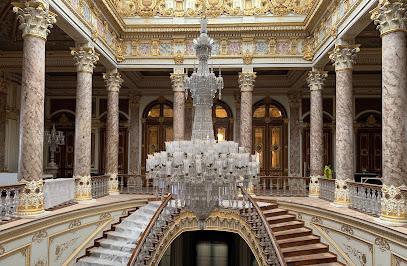
Basilica Cistern
Discover the enchanting Basilica Cistern in Istanbul, an ancient underground marvel filled with history, stunning architecture, and captivating beauty.
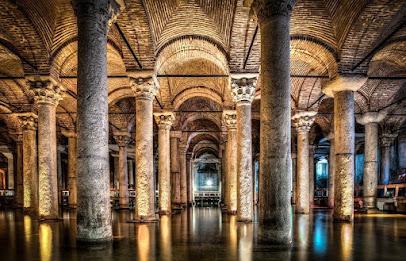
Suleymaniye Mosque
Discover the architectural splendor of Suleymaniye Mosque, a symbol of Istanbul’s rich Ottoman heritage, blending beauty, history, and spirituality.
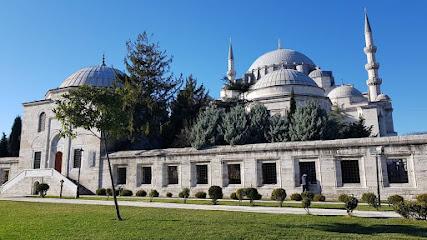
İBB Emirgan Grove
Explore the serene beauty of İBB Emirgan Grove in Istanbul, a stunning urban park with vibrant gardens and breathtaking views of the Bosphorus.
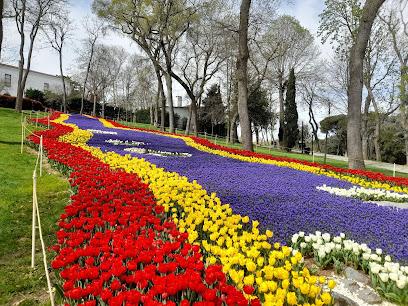
VIALAND Tema Park
Experience the excitement of VIALAND Theme Park in Istanbul, where thrilling rides and captivating attractions await visitors of all ages.
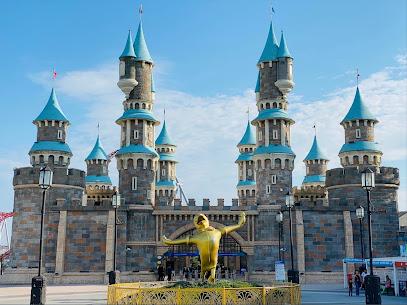
Taksim Square
Explore Taksim Square, a lively cultural epicenter in Istanbul, rich in history, shopping, and iconic landmarks.
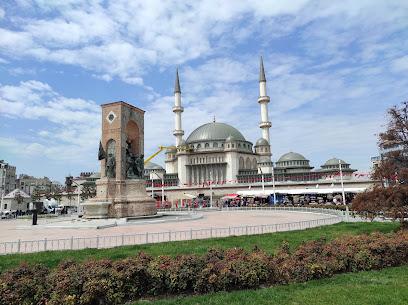
Büyük Mecidiye Mosque
Experience the stunning architectural beauty and serene atmosphere of Büyük Mecidiye Mosque, a cultural gem in the heart of Istanbul.
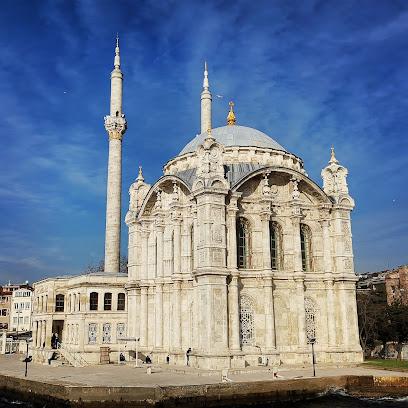
Yıldız Park
Discover the tranquility of Yıldız Park, a lush green haven in Istanbul's Beşiktaş district, perfect for relaxation and cultural exploration.
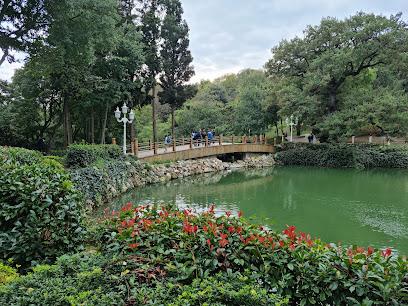
Istanbul Aquarium
Explore the captivating marine life and immersive exhibits at Istanbul Aquarium, a must-visit destination for families and ocean lovers alike.
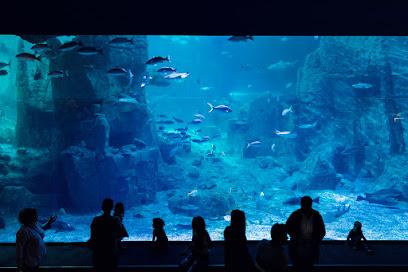
Sultanahmet Square
Discover the historic and cultural heart of Istanbul at Sultanahmet Square, surrounded by stunning architecture and vibrant local life.
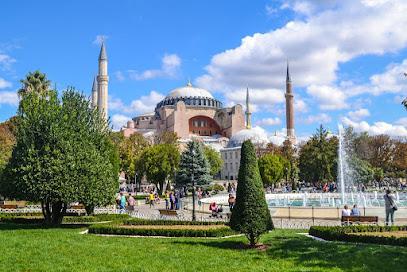
Miniaturk
Explore Turkey's rich architectural heritage at Miniaturk, an open-air museum featuring intricate miniature replicas of the nation's most famous landmarks.
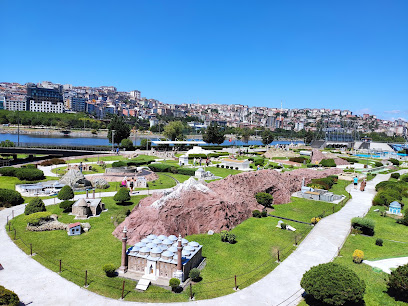
Essential places to dine
Hanzade Terrace Restaurant
Indulge in authentic Turkish flavors while enjoying breathtaking views at Hanzade Terrace Restaurant in Istanbul.
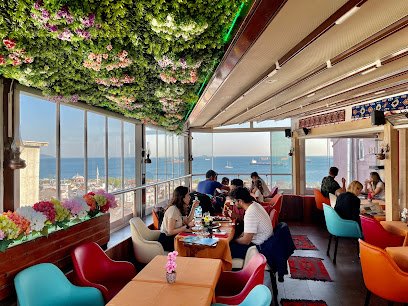
Hidden Garden
Experience the perfect blend of Turkish tradition and global flavors at Hidden Garden, Istanbul's culinary gem nestled in nature.
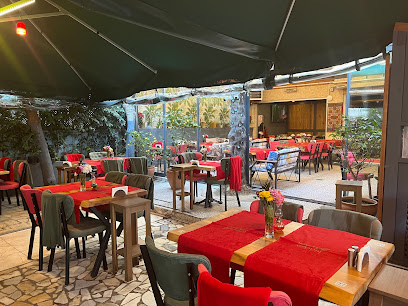
Garden 1897 Restaurant
Experience exquisite Turkish cuisine at Garden 1897 Restaurant, where tradition meets modern elegance in the heart of Istanbul.
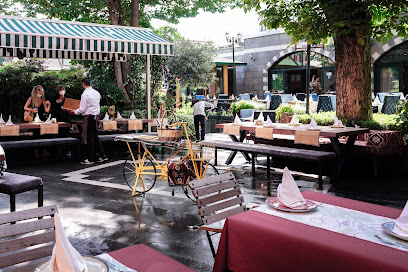
Seven Hills Restaurant
Experience authentic Turkish cuisine with breathtaking views at Seven Hills Restaurant in Istanbul.
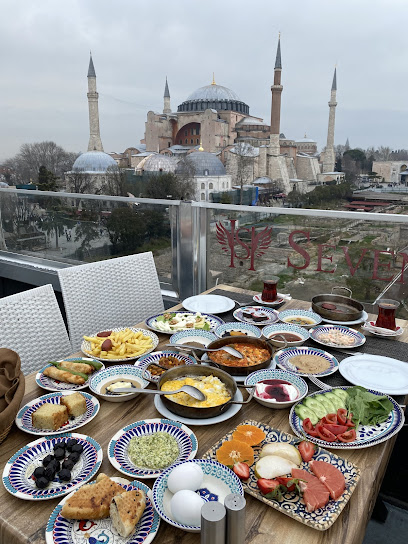
Mivan Restaurant & Cafe
Discover exquisite Turkish cuisine at Mivan Restaurant & Cafe in Istanbul - where tradition meets modernity in every dish.
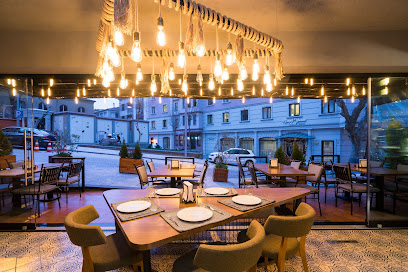
Las Tapas Restaurant
Discover authentic Turkish flavors at Las Tapas Restaurant in Fatih, Istanbul – a true culinary treasure for food lovers.
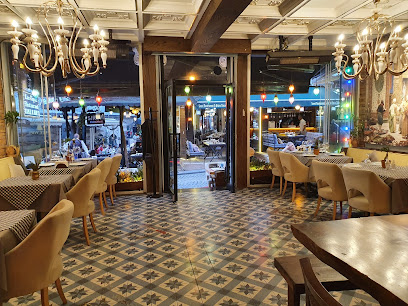
Old Ottoman Cafe & Restaurant
Experience authentic Turkish cuisine steeped in history at Old Ottoman Cafe & Restaurant in Istanbul's vibrant Fatih district.
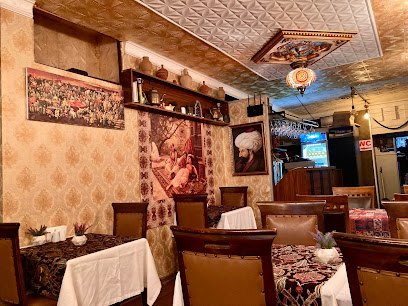
Resto Han
Discover Resto Han in Istanbul - where traditional Turkish cuisine meets Mediterranean flair amidst live music and vibrant atmosphere.
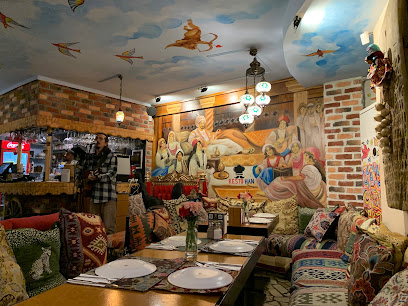
Divella Bistro Restaurant
Experience authentic Turkish cuisine blended with Mediterranean delights at Divella Bistro in the heart of Istanbul.
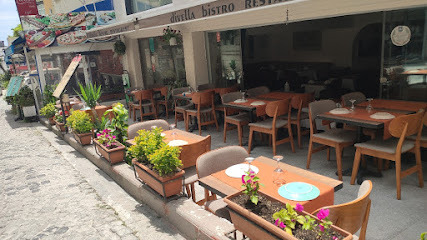
The Ottomans Kitchen Cafe Restaurant
Discover authentic Turkish flavors at The Ottomans Kitchen Cafe Restaurant in Sultan Ahmet, where culinary tradition meets modern hospitality.
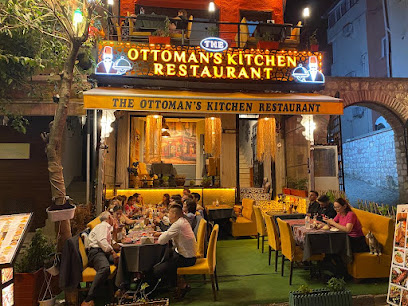
Deraliye
Experience authentic Turkish flavors at Deraliye Restaurant in Istanbul - where tradition meets modern culinary art.
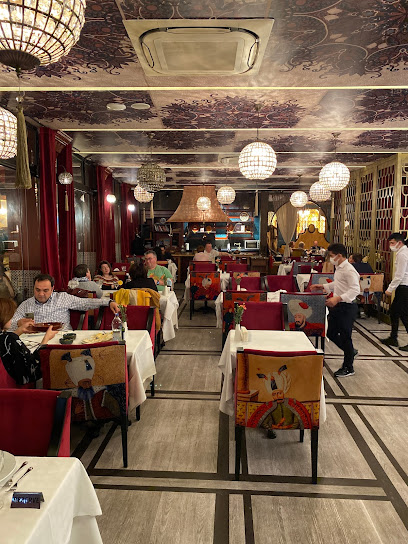
Ararat Terrace Restaurant & Rooftop
Experience exquisite dining at Ararat Terrace Restaurant & Rooftop in Istanbul, where culinary delights meet stunning city views.
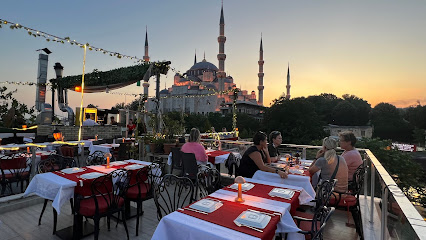
Last Ottoman Cafe & Restaurant
Experience the essence of Turkish cuisine at Last Ottoman Cafe & Restaurant in Istanbul – where every dish tells a story.
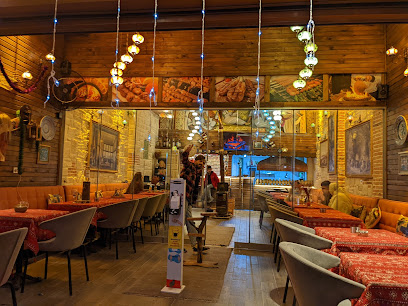
Queb Rooftop Restaurant
Experience breathtaking views and exquisite cuisine at Queb Rooftop Restaurant in Istanbul—where culinary delight meets stunning scenery.
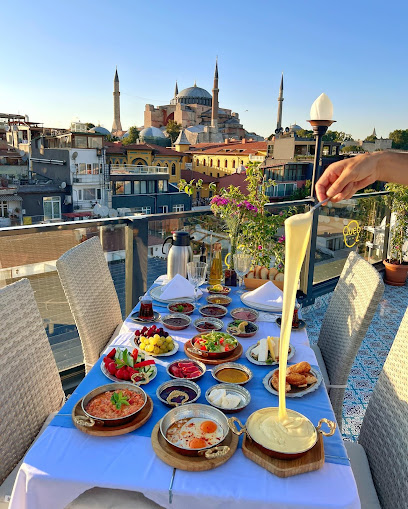
F&B Culture
Discover exquisite Turkish and Mediterranean cuisine at F&B Culture, a vibrant dining destination in Beyoğlu, Istanbul.
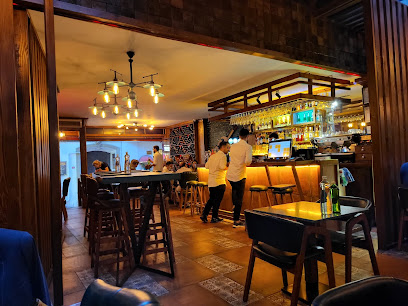
Markets, malls and hidden boutiques
Arasta Bazaar
Explore Arasta Bazaar, a vibrant shopping haven in Istanbul, featuring unique crafts, local delicacies, and a taste of Turkish culture.
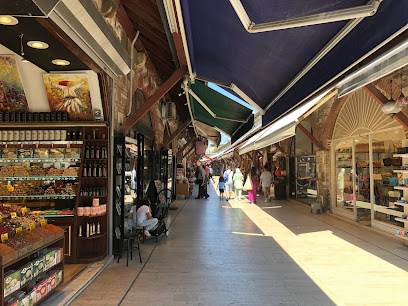
Tree of Life Ceramics & Gift Shop
Discover unique handcrafted ceramics and gifts at Tree of Life Ceramics & Gift Shop in Istanbul's Fatih district, capturing the essence of Turkish artistry.
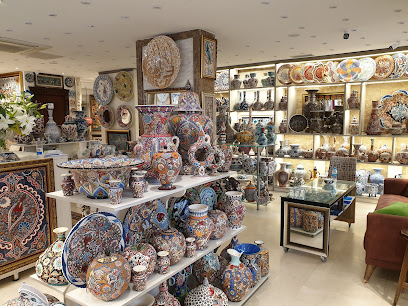
Prens Leather
Discover exquisite leather craftsmanship at Prens Leather, a top destination for high-quality leather goods in the heart of Istanbul.
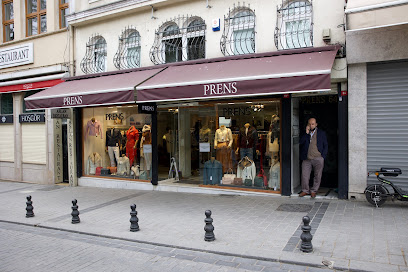
Istanbul Bazaar
Explore the Istanbul Bazaar, where vibrant fashion meets rich Turkish culture in a unique shopping experience.
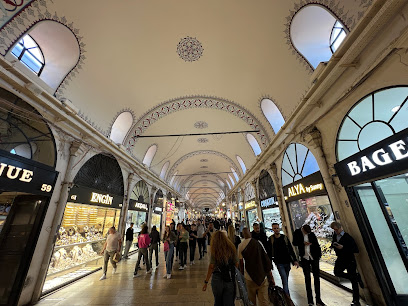
İrma Butik
Explore the elegance of İrma Butik in Kadıköy, Istanbul - a fashion haven for haute couture and designer enthusiasts.
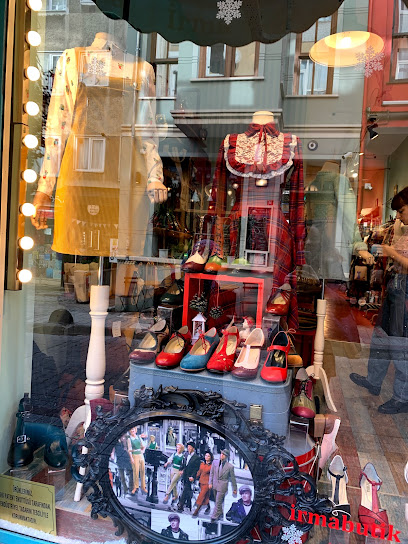
Aponia Store
Discover Aponia Store in Istanbul: a creative oasis of graphic design, unique clothing, and unforgettable souvenirs.

Istanbul Shopping Center
Explore the bustling Istanbul Shopping Center, a vibrant shopping mall offering an array of textiles, women's clothing, and local culture in every corner.
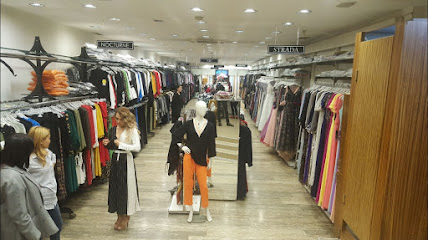
Tuncer Gift Shop Mosaic Lamps Turkish Lamps
Explore the enchanting world of Turkish craftsmanship at Tuncer Gift Shop, home to exquisite mosaic lamps and unique ceramics in Istanbul.
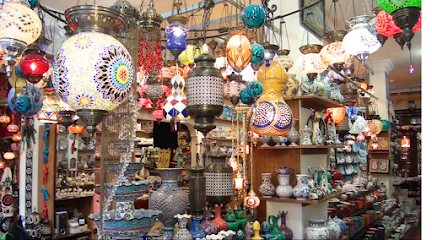
Zakir Gallery
Discover the charm of Turkey at Zakir Gallery, where unique souvenirs and traditional crafts meet captivating stories.
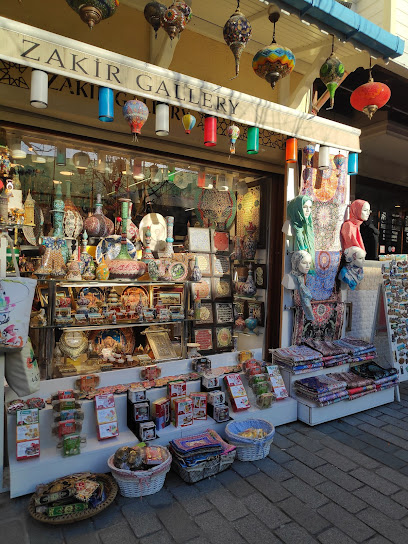
MAEZAE
Explore MAEZAE, a treasure-filled gift shop in Istanbul, where unique antiques, exquisite jewelry, and artisan cosmetics await every curious traveler.
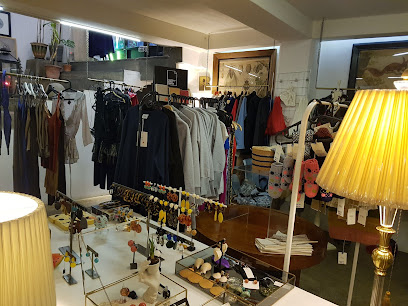
Kuzgun Shop
Discover the vibrant world of hobbies at Kuzgun Shop in Istanbul's Beyoğlu district, where creativity meets community in a unique shopping experience.
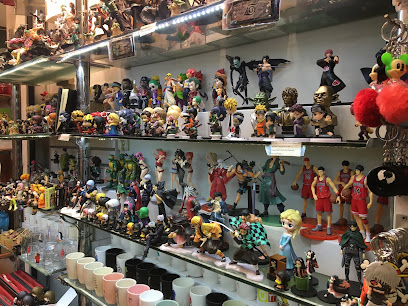
Centro
Discover the vibrant fashion scene at Centro, a top clothing store in Istanbul’s bustling Beyoğlu district, offering trendy styles for every occasion.
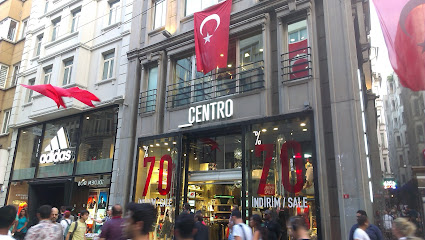
Vintage Mode
Discover trendy sportswear and stylish sunglasses at Vintage Mode, a vibrant clothing store in the heart of Kadıköy, Istanbul.
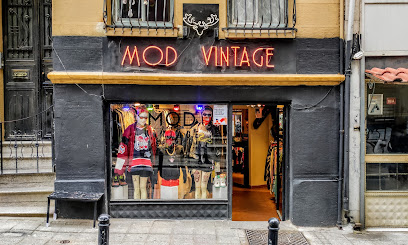
Madam Mare Vintage Store
Explore Madam Mare Vintage Store in Cihangir for unique vintage clothing and accessories that capture Istanbul's history and style.
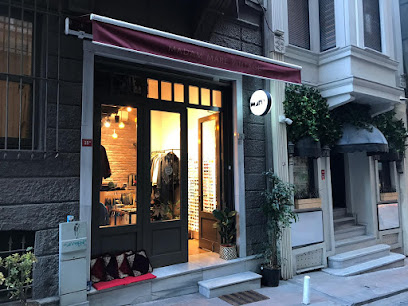
Vintage Istanbul
Explore Vintage Istanbul, a charming jewelry store in Cihangir offering unique, handcrafted pieces that reflect Turkey's rich cultural heritage.
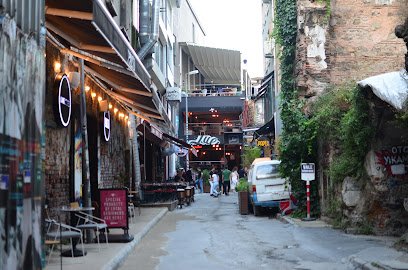
Essential bars & hidden hideouts
Corner Irish Pub
Discover the essence of Irish hospitality in the heart of Istanbul at Corner Irish Pub, where great drinks and live music create unforgettable moments.
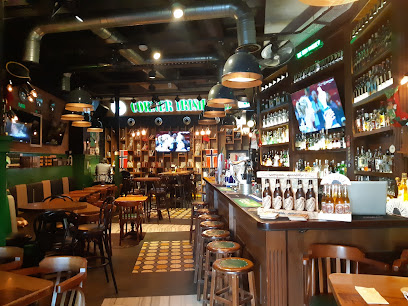
Irish Pub The James Joyce
Discover authentic Irish hospitality at The James Joyce, a beloved pub in Istanbul's lively Beyoğlu, offering delectable food and a wide selection of drinks.
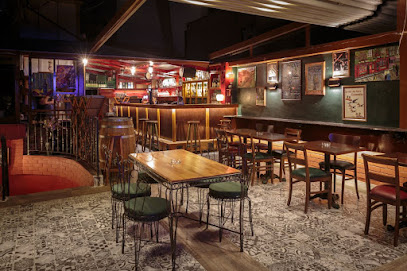
U2 Istanbul Irish Pub
Discover U2 Istanbul Irish Pub, where the vibrancy of Irish culture meets the charm of Istanbul, featuring live music and authentic cuisine.
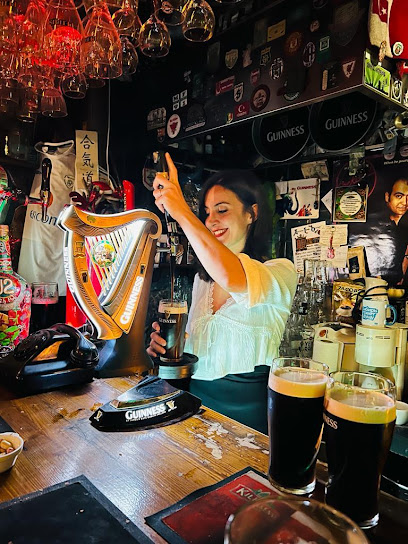
Red River Pub
Discover Red River Pub in Istanbul - where delightful cuisine meets a vibrant atmosphere for an unforgettable dining experience.
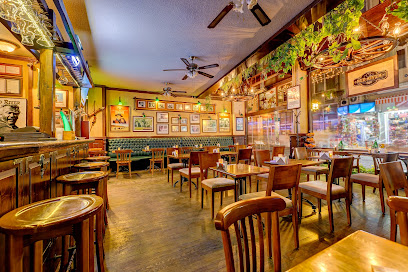
Balkon Restaurant & Bar
Discover the vibrant flavors of Turkish cuisine at Balkon Restaurant & Bar, where modern dining meets traditional charm in the heart of Istanbul.
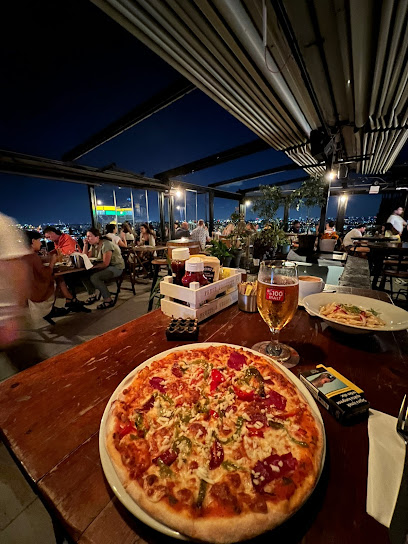
Flekk
Experience innovative cocktails in a chic atmosphere at Flekk, Beyoğlu's premier cocktail bar, perfect for nightlife enthusiasts in Istanbul.
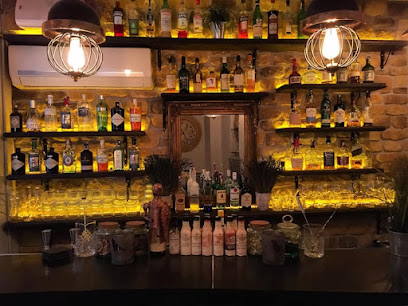
Moretenders’ Cocktail Crib & Sushi
Discover the perfect blend of innovative cocktails and authentic Japanese cuisine at Moretenders’ Cocktail Crib & Sushi in the heart of Istanbul.
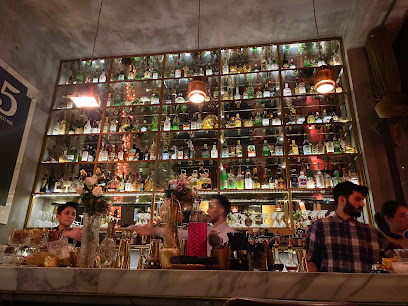
Just Bar
Experience the vibrant nightlife of Istanbul at Just Bar, where delightful drinks and a welcoming atmosphere await in Cankurtaran.
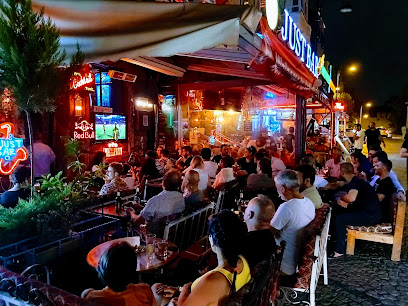
monkeyistanbul
Experience the vibrant nightlife of Istanbul at Monkey Istanbul, a cocktail bar with stunning views and a creative drink menu.
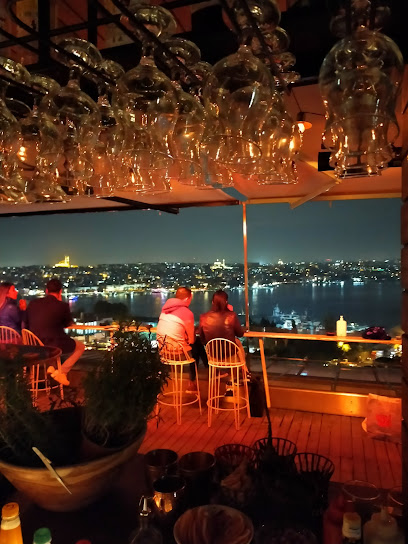
Tower Pub
Discover the vibrant atmosphere of Tower Pub in Beyoğlu, Istanbul, where exceptional drinks and friendly service await you.
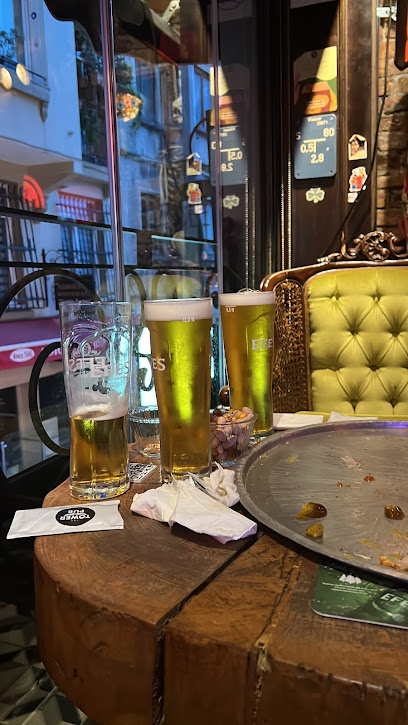
Pub Crawl Istanbul
Discover Istanbul's vibrant nightlife with Pub Crawl Istanbul, where adventure and socializing come together for an unforgettable evening in the heart of the city.
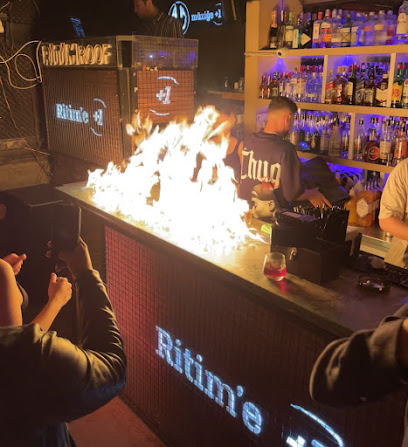
Mr. Bliss
Discover the vibrant nightlife at Mr. Bliss, a top bar in Beyoğlu, Istanbul, serving delicious cocktails in a lively atmosphere filled with friendly locals.
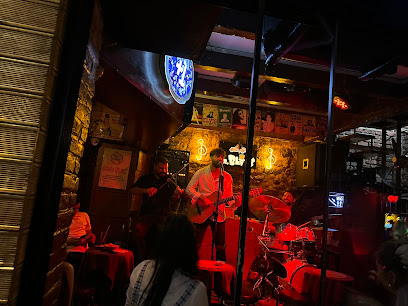
Bar Rasputin
Experience the vibrant nightlife of Istanbul at Bar Rasputin, a trendy bar in Beyoğlu known for its creative cocktails and lively atmosphere.
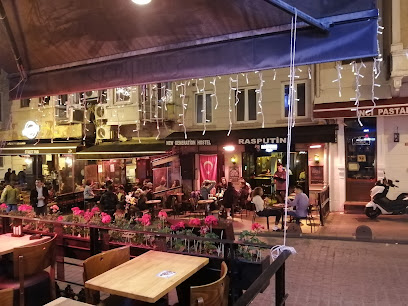
Citylights Bar - Taksim
Discover the vibrant ambiance and exquisite drinks at Citylights Bar in Taksim, a perfect spot for nightlife enthusiasts in Istanbul.
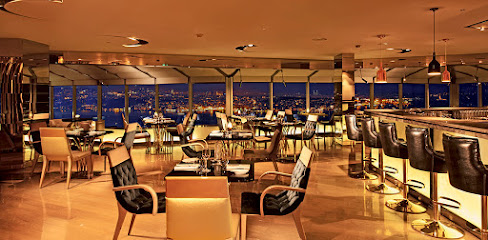
Local Phrases
-
- HelloMerhaba
[mehr-hah-bah] - GoodbyeHoşça kal
[hosh-cha kal] - YesEvet
[eh-vet] - NoHayır
[hah-yuhr] - Please/You're welcomeLütfen
[loot-fen] - Thank youTeşekkür ederim
[teh-sheh-kuhr eh-deh-reem] - Excuse me/SorryÖzür dilerim
[oz-oer dee-leh-reem] - How are you?Nasılsınız?
[nah-suhl-suh-nuhz] - Fine. And you?İyiyim. Siz?
[ee-yee-yeem. siz] - Do you speak English?İngilizce konuşuyor musunuz?
[een-gee-leez-jeh koh-noo-shoo-yohr moo-soo-nooz] - I don't understandAnlamıyorum
[ahn-lah-muh-yoh-room]
- HelloMerhaba
-
- I'd like to see the menu, pleaseMenüyü görmek istiyorum, lütfen
[meh-noo-yoo guhr-mehk ees-tee-yoh-room, loot-fen] - I don't eat meatEt yemem
[et yeh-mehm] - Cheers!Şerefe!
[sheh-reh-feh] - I would like to pay, pleaseÖdemek istiyorum, lütfen
[oeh-deh-mehk ees-tee-yoh-room, loot-fen]
- I'd like to see the menu, pleaseMenüyü görmek istiyorum, lütfen
-
- Help!Yardım edin!
[yahr-duhm eh-deen] - Go away!Uzaklaş!
[oo-zahk-lahsh] - Call the Police!Polisi arayın!
[poh-lee-see ah-rah-yuhn] - Call a doctor!Doktor çağırın!
[dohk-tohr chah-yuh-ruhn] - I'm lostKayboldum
[kay-bohl-doom] - I'm illHasta'yım
[hah-stah-yuhm]
- Help!Yardım edin!
-
- I'd like to buy...Satın almak istiyorum...
[saht-uhn ahl-mahk ees-tee-yoh-room] - I'm just lookingSadece bakıyorum
[sah-deh-jeh bah-kuh-yoh-room] - How much is it?Bu ne kadar?
[boo neh kah-dahr] - That's too expensiveBu çok pahalı
[boo chohk pah-hah-luh] - Can you lower the price?Fiyatı indirebilir misiniz?
[fee-yah-tuh een-dee-reh-bee-leer mee-see-neez]
- I'd like to buy...Satın almak istiyorum...
-
- What time is it?Saat kaç?
[saht kahch] - It's one o'clockSaat bir
[saht beer] - Half past (10)On buçuk
[on boo-chook] - MorningSabah
[sah-bah] - AfternoonÖğleden sonra
[oh-leh-dehn ah-suh-rah] - EveningAkşam
[ahk-shahm] - YesterdayDün
[doon] - TodayBugün
[boo-goon] - TomorrowYarın
[yah-ruhn] - 1Bir
[beer] - 2İki
[ee-kee] - 3Üç
[ooch] - 4Dört
[duhrht] - 5Beş
[behsh] - 6Altı
[ahl-tuh] - 7Yedi
[yeh-dee] - 8Sekiz
[seh-keez] - 9Dokuz
[doh-kooz] - 10On
[ohn]
- What time is it?Saat kaç?
-
- Where's a/the...?...nerede?
[neh-reh-deh] - What's the address?Adres nedir?
[ah-drehs neh-deer] - Can you show me (on the map)?(Haritada) gösterebilir misiniz?
[(hah-ree-tah-dah) guhs-teh-reh-bee-leer mee-see-neez] - When's the next (bus)?Sonraki (otobüs) ne zaman?
[sohn-rah-kee (oh-toh-buhs) neh zah-mahn] - A ticket (to ....)Bir bilet (....'a)
[beer bee-leht (ah)]
- Where's a/the...?...nerede?
History of Istanbul
-
Istanbul, originally known as Byzantium, was founded by Greek settlers from Megara in 667 BC. The city's strategic location on the Bosporus strait made it an important center for trade and military advantage. Byzantium thrived as a bustling port city under various rulers before falling under Roman control in 196 AD.
-
In 330 AD, Emperor Constantine the Great re-founded Byzantium as Constantinople, making it the new capital of the Roman Empire. This transformation marked the beginning of the city's golden age. The city was adorned with grand structures like the Hagia Sophia, which remained the world's largest cathedral for nearly a thousand years.
-
Constantinople became the heart of the Byzantine Empire, a beacon of Orthodox Christianity and a hub of trade and culture. Despite facing numerous sieges, the city withstood various attacks, including those from the Persians, Arabs, and Bulgars, thanks to its formidable Theodosian Walls.
-
In 1204, the Fourth Crusade diverted from its original goal and sacked Constantinople, leading to a period of Latin rule. This era saw the establishment of the Latin Empire, which lasted until 1261 when the Byzantines, under Michael VIII Palaiologos, recaptured the city.
-
On May 29, 1453, Constantinople fell to the Ottoman Turks under Sultan Mehmed II, marking the end of the Byzantine Empire. The city's capture was a pivotal event in world history, signaling the rise of the Ottoman Empire and the transition of Constantinople into an Islamic city.
-
Renamed Istanbul, the city flourished as the capital of the Ottoman Empire. This period saw the construction of iconic architectural marvels such as the Topkapi Palace, the Blue Mosque, and the Grand Bazaar. Istanbul became a melting pot of cultures, blending Ottoman, Persian, Arabic, and Byzantine influences.
-
Following the fall of the Ottoman Empire after World War I, Istanbul was occupied by Allied forces. In 1923, the Republic of Turkey was established by Mustafa Kemal Atatürk, and Ankara became the new capital. Despite no longer being the capital, Istanbul continued to thrive as Turkey's cultural and economic heart.
-
Today, Istanbul is a vibrant metropolis straddling two continents, Europe and Asia. Its rich history is evident in its diverse neighborhoods, historic landmarks, and cultural festivals. Istanbul remains a city where ancient traditions and modernity coexist, continuing to enchant visitors from around the world.
Istanbul Essentials
-
Istanbul is served by two major international airports: Istanbul Airport (IST) on the European side and Sabiha Gökçen Airport (SAW) on the Asian side. Both airports offer a variety of flights from cities around the world. From the airport, you can take a taxi, shuttle bus, or public transport to reach the city center. The Havaist bus service from Istanbul Airport and Havabus from Sabiha Gökçen Airport are convenient and affordable options.
-
Istanbul has an extensive public transportation system, including buses, trams, metro lines, ferries, and funiculars. The Istanbulkart, a reloadable card, is the most convenient way to pay for public transport. Taxis and ridesharing services like BiTaksi and Uber are also available. For a unique experience, consider taking a ferry ride across the Bosphorus to enjoy scenic views of the city.
-
The official currency of Turkiye is the Turkish Lira (TRY). Credit and debit cards are widely accepted in hotels, restaurants, and shops, but it is advisable to carry some cash for small purchases or in case of technical issues. ATMs are plentiful in Istanbul, and currency exchange offices offer competitive rates.
-
Istanbul is generally safe for tourists, but it is wise to stay vigilant. Avoid isolated areas at night and keep an eye on your belongings in crowded places like markets and public transport. Some areas, such as Tarlabaşı and parts of Aksaray, have higher crime rates and should be avoided, particularly after dark. Stick to well-lit, busy areas and be cautious when approached by strangers.
-
In case of emergency, dial 112 for medical assistance, 155 for police, and 110 for fire services. Hospitals and clinics are available throughout the city, with several offering services in foreign languages. It's advisable to have travel insurance that covers medical emergencies. Pharmacies (Eczane) are easily found and can provide over-the-counter medications.
-
Fashion: Do dress modestly, especially when visiting religious sites. Women should cover their heads in mosques. Avoid overly revealing clothing. Religion: Do respect local customs. Remove your shoes before entering mosques. Public Transport: Do give up your seat to elderly passengers. Don’t eat or drink on trams and buses. Greetings: Do greet people with a handshake. Men may greet close male friends with a kiss on each cheek. Eating & Drinking: Do try local delicacies and accept food offerings graciously. Don’t refuse tea, as it is a significant part of Turkish hospitality.
-
To experience Istanbul like a local, take a stroll through neighborhood markets like Kadıköy or Beşiktaş. Enjoy a traditional Turkish breakfast (kahvaltı) in a local café. Visit the lesser-known mosques and historical sites to escape the crowds. Take a ferry ride to the Princes' Islands for a day trip. Spend an evening at a meyhane (tavern) enjoying live music and meze (small dishes).
Nearby Cities to Istanbul
-
Things To Do in Bursa
-
Things To Do in Burgas
-
Things To Do in Canakkale
-
Things To Do in Varna
-
Things To Do in Alexandroupoli
-
Things To Do in Shumen
-
Things To Do in Haskovo
-
Things To Do in Stara Zagora
-
Things To Do in Izmir
-
Things To Do in Pamukkale
-
Things To Do in Ankara
-
Things To Do in Constanta
-
Things To Do in Gabrovo
-
Things To Do in Ephesus
-
Things To Do in Kusadasi



















